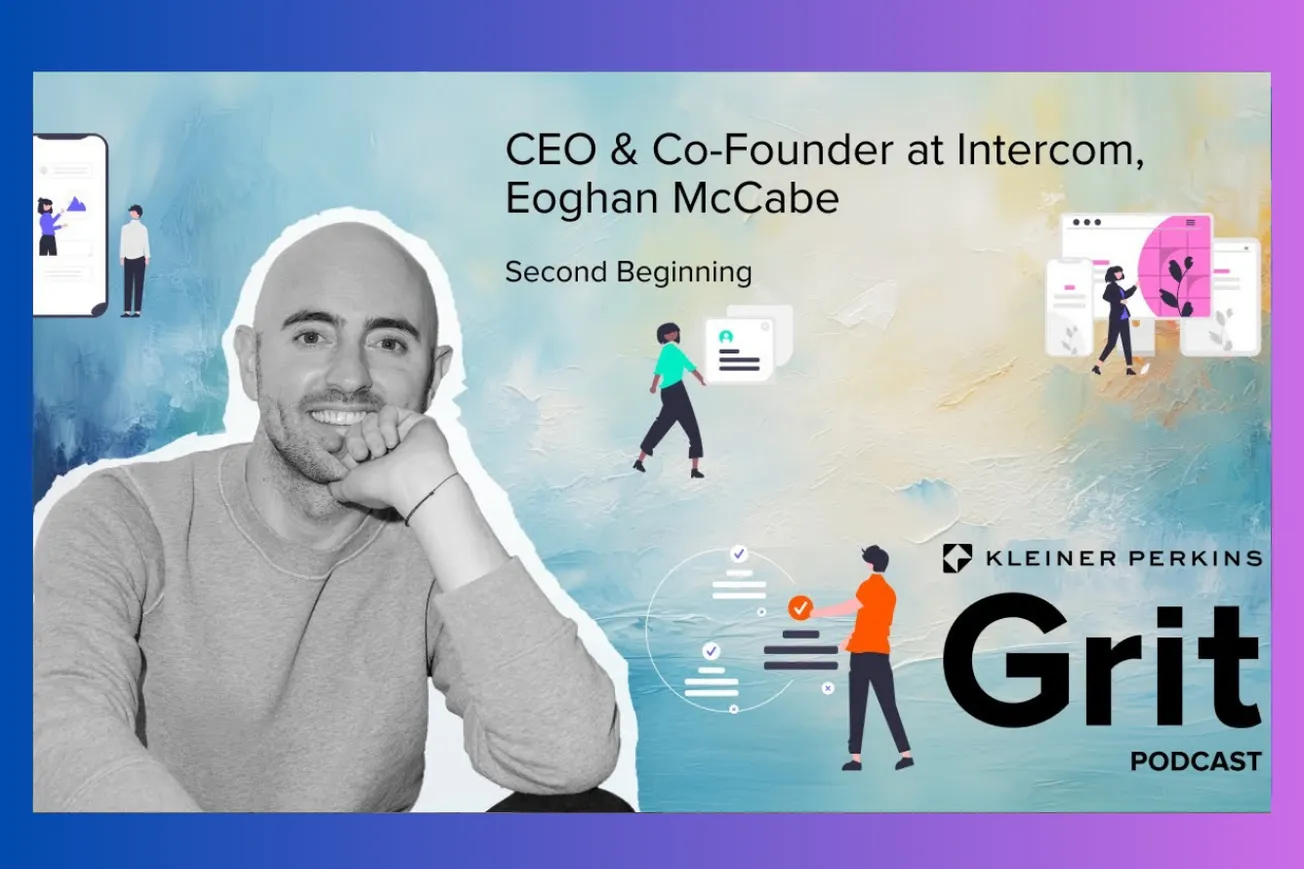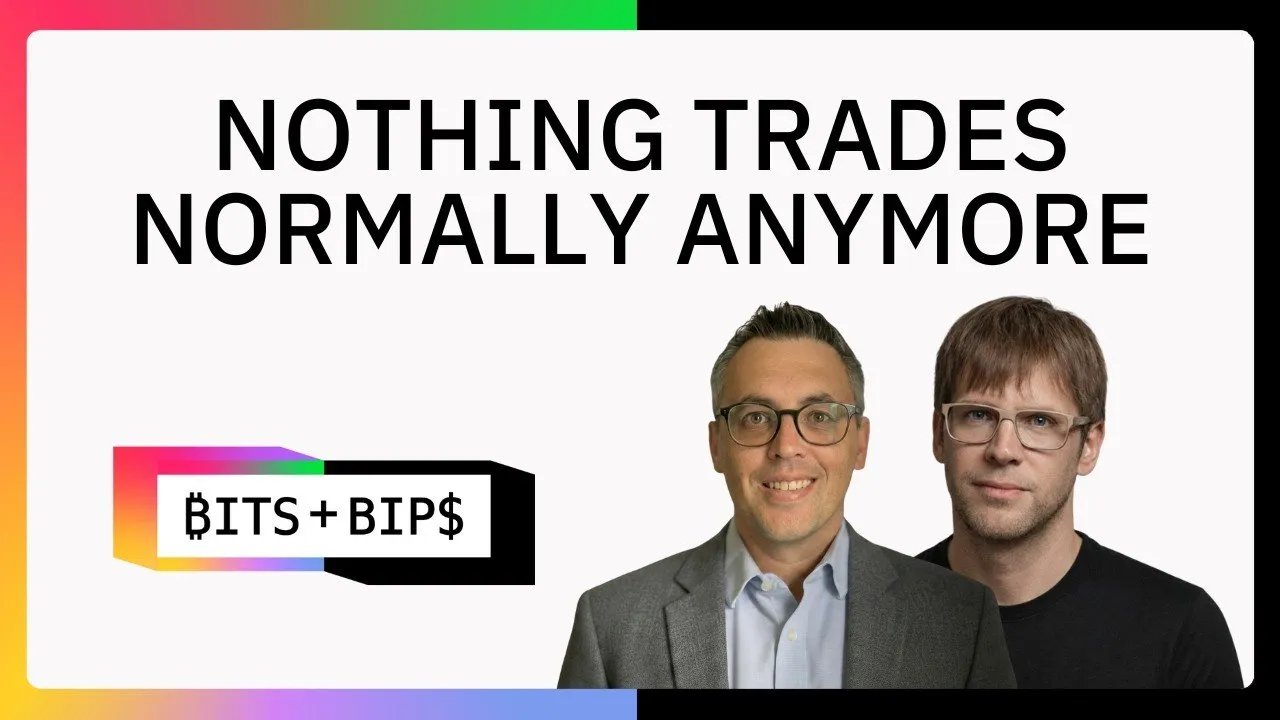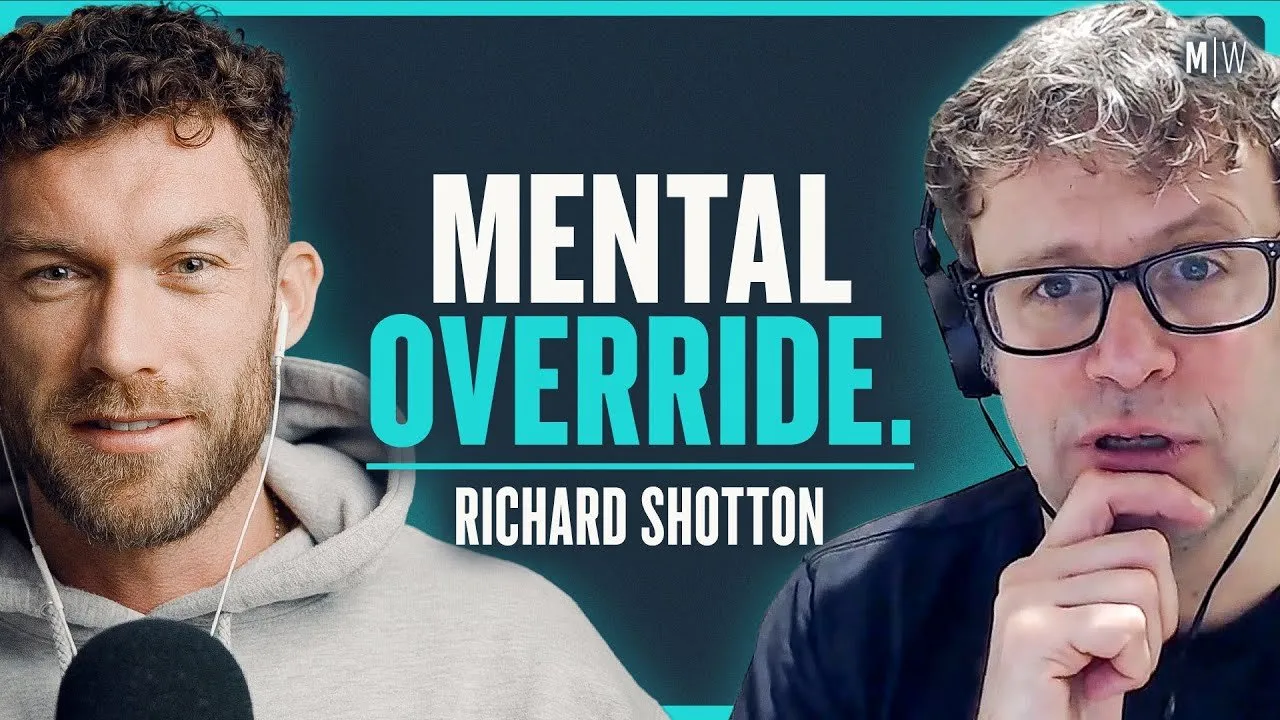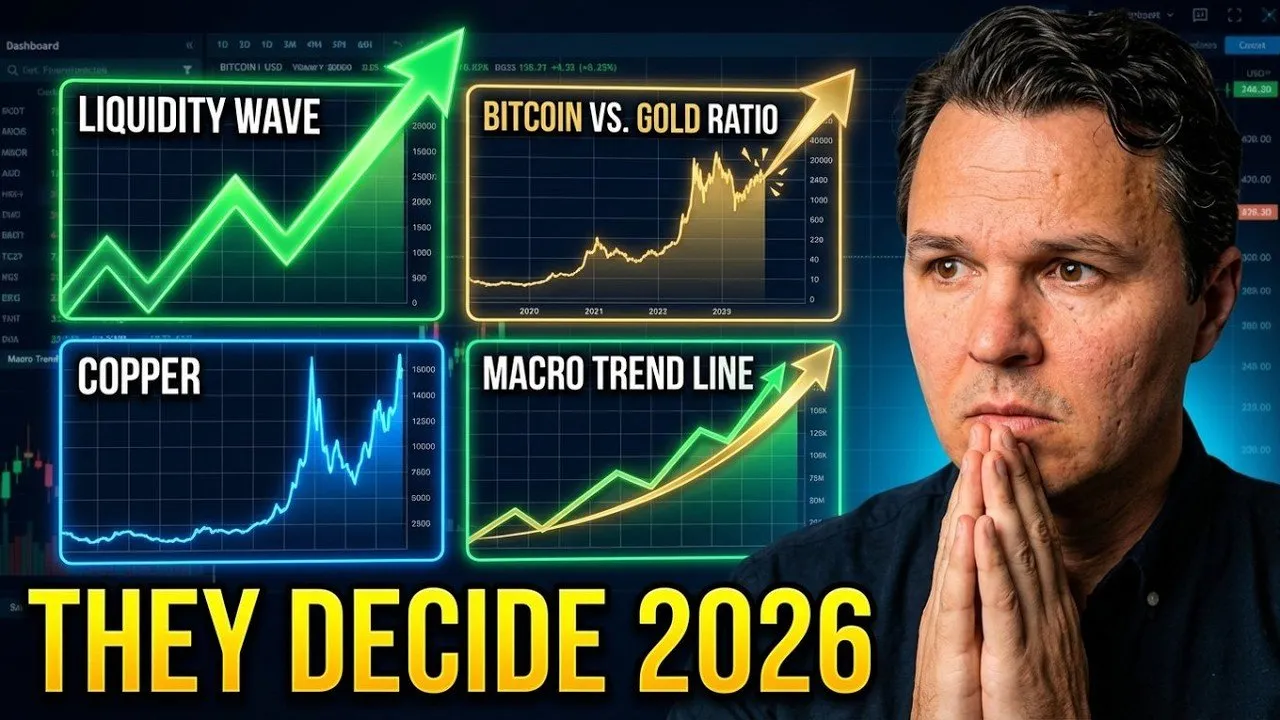Table of Contents
Intercom CEO Eoghan McCabe reveals how public criticism became his greatest gift, why AI will transform all knowledge work, and the "shitty lifestyle" sacrifice required to build world-changing companies.
After 18 months away from the company he co-founded, Eoghan McCabe returned to Intercom with radical transparency, a 37% Glassdoor rating, and a mission to rebuild everything for the AI revolution ahead.
Key Takeaways
- Success and insecurity are deeply intertwined - the biggest names in tech often follow up interviews asking "how did I do?" revealing persistent self-doubt
- Public criticism, while painful, can become liberation by destroying ego and freeing founders from fear of being seen as imperfect
- AI will handle 70% of customer service tickets within two years, fundamentally changing how companies operate and scale support functions
- The 2024 tech energy in San Francisco mirrors 2011's optimism but with AI companies replacing SaaS as the dominant new category
- Returning founders must be willing to "rip up everything" and risk existing revenue to capture transformational opportunities like AI
- Therapy and self-work aren't luxuries for founders but essential tools for managing the psychological demands of high-stakes leadership
- The "never enough" drive that creates success doesn't disappear with healing - it transforms into integrated motivation alongside compassion and purpose
- Building great companies requires accepting a "shitty lifestyle" of constant meetings and structured stress in exchange for deep purpose and impact
Timeline Overview
- 01:04–06:16 — Insecurity and Success Correlation: Why the biggest tech names are often the most insecure people, the relationship between public confidence and private struggle
- 06:16–08:20 — Intercom's AI-First Mission: Positioning to become "the next Zendesk" through AI-powered customer service, current 45% automation rates and growth trajectory
- 08:20–15:50 — Reinvention and Anti-Big Company Culture: Returning as CEO to eliminate "big company values," increasing shipping velocity 41%, and creating "founder juju" energy
- 15:50–16:53 — Becoming an AI Company: Fundamental business model shift from human workflows to AI-driven solutions, infrastructure implications for all SaaS companies
- 16:53–21:03 — 2011 vs 2024 Silicon Valley Energy: Comparison of current AI boom to early cloud/mobile era, return of builder energy and startup ecosystem vitality
- 21:03–25:07 — AI Transformation Across All Work: Predictions for AI handling all knowledge work and blue-collar jobs, toilet-cleaning robots and 70% customer service automation
- 25:07–30:25 — The Gift of Public Criticism: How media attacks and criticism destroy ego but create freedom from perfectionism and fear of judgment
- 30:25–33:16 — Reality vs Retirement Dreams: The gap between entrepreneurial fantasies of peaceful time off and the reality of purposeless days
- 33:16–36:08 — Redefining Success Metrics: Current goals for Intercom's market position, personal contribution to AI revolution, and supporting next-generation builders
- 36:08–39:56 — Running Away from the Company: Health crisis forcing departure, failed acquisition attempts, canceled IPO, and feeling like personal failure
- 39:56–41:58 — The Decision to Return: Weighing advice from friends who care about ego vs those who care about wellbeing, integrating both perspectives
- 41:58–44:10 — Accepting the Busy CEO Lifestyle: Trading flowing flexibility for structured intensity, becoming a "less good friend" for greater purpose and impact
- 44:10–45:44 — Structured Days vs Startup Reality: Planning ideal CEO schedules versus the reality of seven-day weeks and constant availability
- 45:44–50:38 — Self-Mastery as Core Skill: Therapy and spiritual work as secret weapons for founders, the tactical versus emotional aspects of company building
- 50:38–55:08 — Integrating Rough Edges: How psychological work transforms rather than eliminates driving insecurities, maintaining edge while finding peace
- 55:08–END — Hiring Philosophy and Defining Grit: Intercom's current open roles, avoiding social justice workplace issues, and grit as emotional resilience with recovery ability
The Paradox of Success and Insecurity
Eoghan McCabe challenges the conventional image of confident, successful founders by revealing a counterintuitive truth: "Those are some of the most insecure people that I've ever met... the names, the big big big names, are always the ones that follow up: 'how did I do? What was the reception?'"
This insight emerged from his 2011 arrival in Silicon Valley, where he felt "vastly inferior" to the popular entrepreneurs who appeared to be "extremely confident... and all crushing it all of them exclusively all the time." The reality proved different - those highly visible founders didn't create lasting companies, while quieter builders achieved breakthrough success.
- The most successful founders often struggle with persistent self-doubt despite external achievements
- Public confidence frequently masks private insecurity and ongoing psychological struggles
- Authentic success follows a "quieter and lonelier journey" rather than party-circuit visibility
- Insecurity often drives the obsessive behavior necessary for extraordinary achievement
McCabe attributes this phenomenon to three factors: insecurity driving initial success, psychological patterns remaining intact despite external growth, and successful founders rarely investing in personal development work. "Their maladaptive psychology actually is simultaneously a recipe for unhappiness and success."
AI Revolution: From 45% to 70% Automation
Intercom currently handles "about 45% of all inbound tickets" through AI automation, representing a dramatic increase from "26% less than a year ago." McCabe predicts this will reach "close to 70% without a shadow of a doubt" within two years, with some customers already achieving "70, 80, 90% of all their support volume through our AI."
The transformation extends beyond customer service metrics. "It's not deflection, it's resolution - real resolution, instant resolution rather than customers waiting days... and CSAT is stable, customers love it." This allows human agents to focus on "more human, creative, interesting work that requires empathy and creativity."
- Current AI automation handles nearly half of all customer support tickets with high satisfaction rates
- Two-year trajectory points to 70% automation as AI capabilities rapidly improve
- Human agents shift from repetitive tasks to complex, empathy-driven customer interactions
- Business model implications extend across all SaaS companies selling "seats" for human workers
McCabe sees this as part of a broader transformation: "Every single category, every single type of knowledge work is going to get done by AI, and all blue-collar work also." He cites toilet-cleaning robots that can "traverse a building in an elevator... goes floor by floor... cleans the entire restroom... all on its own."
Reinventing Company Culture at Scale
When McCabe returned as CEO 18 months ago, Intercom had over 1,000 employees and hundreds of millions in revenue. Rather than accepting "big company" constraints, he deliberately chose to "operate with a small company mindset... I refuse for us to be a big company, we're not doing any big company things."
The transformation involved radical cultural changes: "I let some big company executives leave, I ripped up the big company values... I asked the company what are all the ways in which we're big and slow and shitty and I changed a lot of processes." The results were measurable - "the rate at which we shipped software increased by 41% over the previous 12 months."
- Successfully eliminated bureaucratic processes and executives who embodied "big company" thinking
- Increased software shipping velocity by 41% through cultural and operational changes
- Maintained startup energy and risk-taking appetite despite significant scale and revenue
- Created "founder juju" that attracts builders while repelling those seeking stability
McCabe's approach included highly visible leadership changes: "I started to answer customers on Twitter, I started to apologize to customers on Twitter... there were many F-bombs and other bombs in my tweets." This authentic, unpolished communication style signaled broader cultural transformation.
The Liberation of Public Criticism
One of McCabe's most profound insights concerns how public attacks and criticism can become unexpected gifts. "There's a certain gift you get from being criticized and embarrassed... it trashes your ego... but once eviscerated you're now free from the insecurity about your imperfection."
This liberation enabled radical decision-making upon his return. His Glassdoor rating dropped to "37% after I came back... I had never heard of a Glassdoor rating that low... but you don't care because you know who you are, you know what you stand for."
- Public criticism destroys perfectionist self-image but creates freedom from judgment and fear
- Ego destruction enables authentic leadership without concern for maintaining polished appearance
- Low employee ratings become acceptable when leaders operate from principle rather than approval-seeking
- Founders who've been "attacked" can take bigger risks because reputation concerns diminish
The transformation goes beyond professional benefits: "When someone says something to you that you know is true... you're like 'yeah, okay.' But if you have something that you're kind of scared of... that's the thing that really hurts." Accepting imperfection eliminates the power others have to wound through criticism.
2024 Silicon Valley Renaissance
McCabe draws parallels between current tech energy and the 2011 period when he arrived in San Francisco. "I see the same energy again right now... new growth, new energy, new early-stage startups and now a new genre of technology company." The difference lies in AI companies replacing SaaS as the dominant category.
"SAS is kind of done... but people are just building so much more interesting things... so many AI companies, hardware companies, defense tech, health tech." He describes the energy as "fully back as of 6 months ago" and predicts "this is about to be a golden age for technology."
- Current AI boom mirrors 2011's cloud/mobile transformation with similar entrepreneurial energy
- SaaS reached maturity while AI represents the next major platform shift
- Early-stage startup ecosystem shows highest quality and quantity McCabe has witnessed
- Geographic concentration in Bay Area despite global tech distribution
McCabe's investment activity reflects this optimism: "I've started to invest deliberately now... well over a dozen in the last month... I decided I'm only going to invest in things that are cool, not things I think could make money." This abundance mindset indicates his perception of unprecedented opportunity.
The "Shitty Lifestyle" Trade-off
McCabe offers refreshing honesty about the personal costs of high-performance leadership. "People fetishize this lifestyle, they like the idea of this badass running meetings to meetings... it's bullshit, it sucks." He describes the reality: "I'm now working seven days a week, 8-9 hours a day."
However, he frames this as conscious choice rather than victimhood: "People who live these lives and have these struggles, they also experience some of the deepest purpose of any I know." The trade-off involves "deep purpose and connection with brilliant people and contributing to the world and society."
- CEO lifestyle involves genuine sacrifice of personal time, relationships, and flexibility
- High-performance leadership requires accepting structured stress and constant availability
- The trade-off provides access to unusual levels of purpose, impact, and intellectual stimulation
- Most people lack awareness of both the costs and benefits of extreme professional dedication
McCabe acknowledges becoming a "less good friend to a lot of people" but finds meaning in "knowing that you're doing things important that use your talents and gifts and strengths." This honest assessment helps potential founders understand the actual requirements.
Self-Mastery as Competitive Advantage
Perhaps McCabe's most important insight concerns the role of therapy and personal development in founder success. "The hardest part of this is self-mastery... managing yourself and learning to love and appreciate yourself." He advocates strongly for professional help: "Find a great and intelligent coach, therapist, and spiritual teacher."
The business case is compelling: "If you know yourself and how to connect to yourself and communicate and be vulnerable and real, your ability to connect with others and hire outstanding individuals... is magnitudes increased." Yet "remarkably very few founders do that, they fear and criticize and judge therapy."
- Self-awareness and emotional intelligence directly impact hiring, motivation, and leadership effectiveness
- Therapy provides practical tools for managing the psychological demands of high-stakes decision-making
- Founders who criticize therapy often need it most, indicating fear rather than unnecessary luxury
- Personal development work becomes competitive advantage in talent-dependent businesses
McCabe shares that even today, "I had conversations with two unicorn CEOs... they both said 'I suffer from deep anxiety,' one just started to get help." The universality of founder mental health challenges makes professional support essential rather than optional.
Integration vs. Elimination of Drive
A crucial insight emerges about the relationship between healing and achievement motivation. McCabe references spiritual teacher Ram Dass: "Someone asked him... 'Did you ever get over your shit?' He's like... 'Over the years the edges certainly got smoothed away but I still have them.'"
This reframes the therapy conversation away from eliminating drive toward integration: "What really happens is the sharp edges that previously created a phenomenal amount of pain... they smooth away and you have awareness of them... but they're not the driver of the bus all the time."
- Psychological work transforms rather than eliminates the insecurities that drive high achievement
- Founders retain competitive edge while gaining awareness and choice about motivation sources
- Integration allows access to multiple drivers: ego, compassion, purpose, mission, and love
- Healing doesn't diminish ambition but provides broader foundation for sustained performance
McCabe describes his current state: "Sometimes I'm like 'why don't I get recognition for this thing?'... my ego shows up but then pretty quickly I'm like 'well that's my ego and that's okay.'" This awareness creates choice rather than compulsion.
Common Questions
Q: How does AI transformation affect traditional SaaS business models?
A: Companies selling "seats" for human workers must transition to AI-driven solutions or face disruption - the shift from workflow products to AI capabilities is existential.
Q: What's the biggest mistake founders make regarding personal development?
A: Avoiding therapy and self-work while criticizing it as "navel-gazing" - the founders who most dismiss it typically need it most urgently.
Q: How do you maintain startup energy at scale without losing stability?
A: Deliberately eliminate "big company" processes and executives, focus on shipping velocity, and hire people who thrive in high-change environments.
Q: Can founders really change their psychological makeup through therapy?
A: Therapy doesn't eliminate driving insecurities but provides awareness and choice - the sharp edges smooth while maintaining competitive motivation.
Q: What's the key to successful founder returns after stepping away?
A: Being willing to "rip up everything" and risk existing success, combined with freedom from reputation concerns that enable authentic leadership.
Conclusion
Eoghan McCabe's journey reveals that founder vulnerability and authentic leadership become competitive advantages rather than weaknesses. His experience demonstrates that companies can successfully reinvent themselves at scale when leaders embrace radical transparency and accept short-term disruption for long-term transformation. The AI revolution requires fundamental business model shifts that favor risk-taking founders over stability-focused professional managers.
Practical Implications for Founders
- Embrace Public Vulnerability: Use criticism and attacks as opportunities to eliminate ego-driven decision-making - freedom from perfectionist image enables bigger risks and authentic leadership
- Invest in Therapy Early: Treat personal development as competitive advantage rather than luxury - self-mastery directly impacts hiring, team motivation, and strategic decision-making capability
- Maintain Startup Culture at Scale: Deliberately eliminate "big company" processes and executives who prioritize stability over velocity - shipping speed and risk-taking can scale with intentional effort
- Accept Lifestyle Trade-offs Consciously: Acknowledge the real costs of high-performance leadership while finding meaning in purpose, impact, and intellectual stimulation
- Transform Rather Than Eliminate Drive: Use psychological work to gain awareness of motivations without losing competitive edge - integration provides broader foundation than pure ego-driven achievement
- Prepare for AI Business Model Disruption: Traditional "seat-based" SaaS companies must transition to AI-driven solutions or face existential competitive threats
- Focus on Knowledge Work Automation: AI will handle increasing percentages of customer service, sales, and operational tasks - human roles shift toward creativity, empathy, and complex problem-solving
- Build for the Long Term During Hype Cycles: Current AI boom parallels 2011 cloud/mobile transformation - sustainable competitive advantages come from execution rather than trend-following





![This New Bitget Platform Changes the Game [Literally Gold]](/content/images/size/w1304/format/webp/2026/02/bitget-launches-universal-exchange-gold-usdt.jpg)